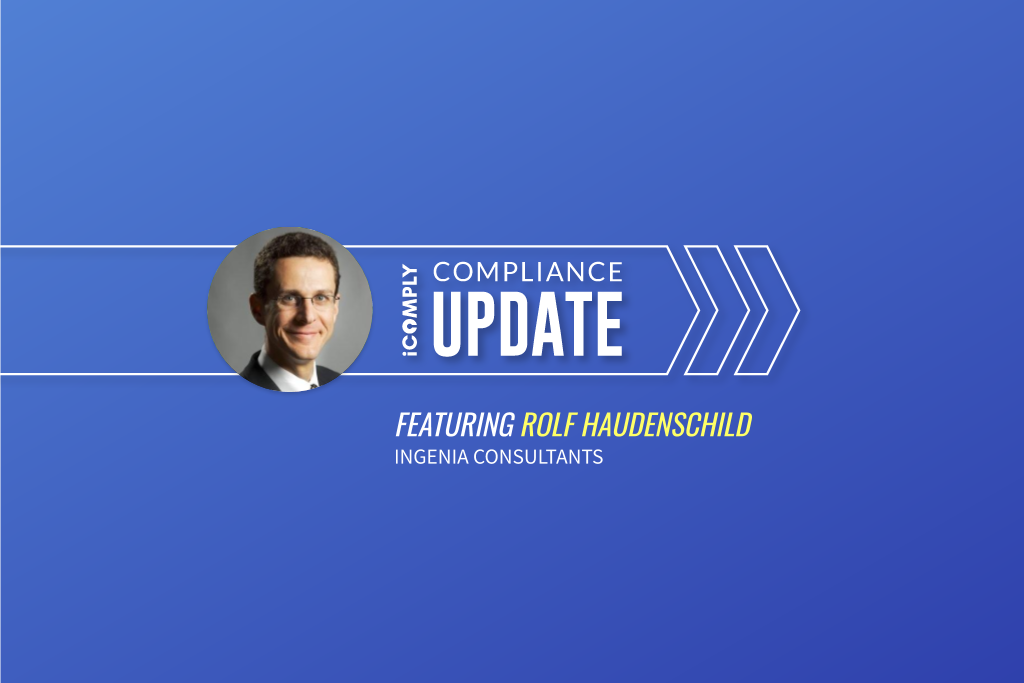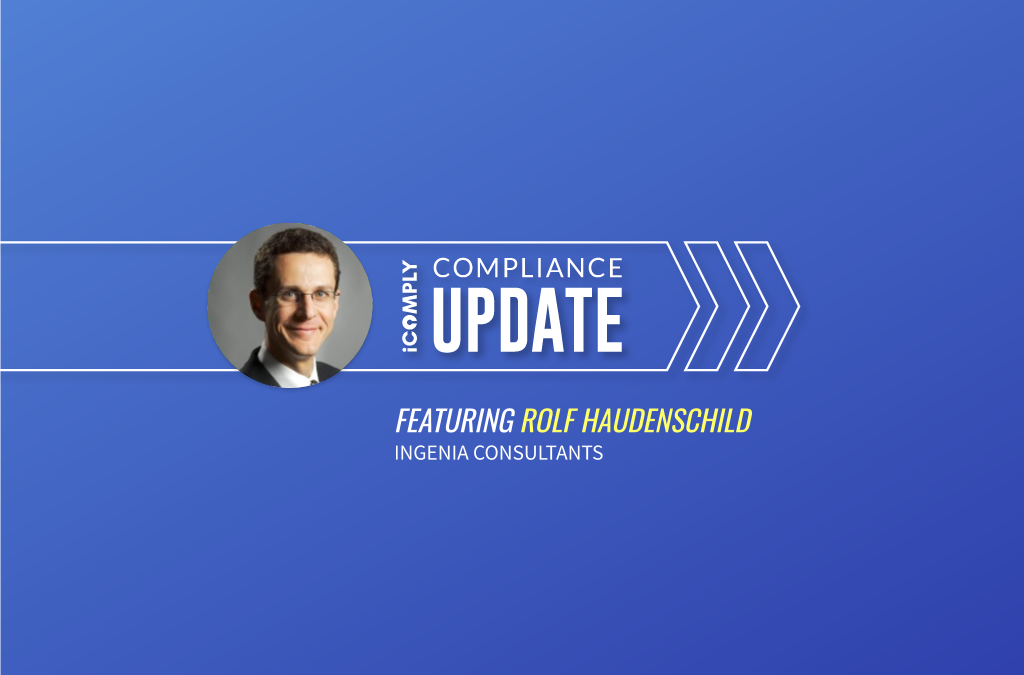Client Suitability in Wealth Management for Singapore Firms

Compliance expert Rolf Haudenschild shares how financial advisors can provide tailored portfolio recommendations to clients based on individual suitability factors
What is client suitability?
Client suitability is having a reasonable basis for recommendations of financial products to a specific client. A financial advisor must understand the financial situation of the specific client as well as his risk appetite and sophistication when creating a portfolio and recommending individual investments to their client.
What types of firms should pay attention to this?
Financial advisors and exempt financial advisors (i.e. other financial institutions that are permitted to provide financial advice and certain other entities) are required to have a reasonable basis when making a recommendation with respect to any investment product. This obligation is, however, restricted to dealings with retail clients. For accredited investors (such as high-net-worth individuals and their wealth management structures) and institutional investors (such as governments and financial institutions), an exemption applies. However, inspections by the Monetary Authority of Singapore (MAS) found that private banks follow the Private Banking Code of Conduct which calls for similar suitability.
Why does this matter?
The suitability assessment—including the customer account review and the customer knowledge assessment, where required—are mandatory when providing financial advice to retail investors. In contrast, the Private Banking Code of Conduct is not mandatory. Nonetheless, MAS confirmed in their information paper that they expect private banks to apply the guidance of the Private Banking Code of Conduct with regards to suitability. This will also extend to other financial institutions active in financial advisory to high-net-worth individuals.
Does this current landscape create new opportunities? If so, what might they be?
The financial industry has been expecting stronger scrutiny by MAS regarding suitability for a while. Nonetheless, many financial institutions still work on a commission-based model, where they get paid a kick-back on fees from product providers. This model incentivizes commissions over suitability. Accordingly, MAS found instances in their inspections where relationship managers described client risk assessments as paper exercises, and clients were subsequently pushed towards higher risk profiles that allow for higher risk investment products that generally pay a higher commission.
Increased attention to suitability will accelerate the change from such commission-based remuneration to payment for advice. When paid for advice irrespective of commission, the relationship manager forges his success on the relationship with the client, which will increase or decrease based on the quality of the advice and how well the advice suits the specific client.
What are the key risks and challenges? What should stakeholders be looking out for?
While more advanced financial institutions continue to develop their client risk profiles to capture information determining suitability from various and sophisticated angles (e.g. behavioral finance), other financial institutions still require work to consistently implement true client risk profiling, selection of suitable investment products, and pre- and post-trade controls.
With its information paper, MAS has highlighted that it will increase its focus on suitability. Respective inspections may be expected. The current focus on the management of the coronavirus and its impacts in the financial sector certainly distract from this initiative, but it is likely postponed rather than canceled.
How does this impact compliance teams, and what can they do to stay ahead of the game?
Financial institutions providing financial advice and managing assets on a discretionary basis should ensure their implementation of client risk profiles and suitable advice and asset management, as well as pre- and post-trade controls. The MAS information paper is a reminder of enforcement action ahead. Compliance departments and/or internal audit teams should ascertain the proper and consistent implementation. Where necessary, processes for the determination and application of suitability need to be strengthened and adequate controls implemented.
What can management teams or boards of directors do to stay ahead of the game?
Even beyond ensuring this practical implementation of suitability, the board of directors and senior management should obtain reports to evaluate the execution of these measures and deliberate on enhancements as appropriate. Internal audit can provide valuable, independent assurance of compliance.
Boards and senior management must ensure and foster a culture where financial advice and asset management is focused on the interests of the client. This must go beyond the publication of respective policies and procedures. It requires board and senior management to walk the talk and forgo short term profits for the benefit of long-term and mutually beneficial relationships safeguarding the interest of their clients. Moreover, regulators all over the world, including Singapore, have indicated an increasing regulatory focus on the culture in financial institutions.
What can service providers do to help their clients?
Fortunately, suitability can be facilitated by technology these days, and thus the burden for relationship managers and control functions, and ultimately even board and senior management, is lightened. Technologies can facilitate the collection of data as well as the assessment of suitability to assist the relationship manager in their work to provide best fitting solutions to the client. At the same time, technologies can be leveraged for controls to ensure proper conduct and to record the audit trail for this. Currently, grants for the implementation of technologies provide an additional incentive for the use of these technologies.
Nonetheless, it will ultimately always be the humans that give the edge, be it by creating company culture, bringing that personal touch to the relationship, or analyzing and enhancing the systems. Let’s get to work to secure our financial services the long-term path to success by ensuring true suitability for our clients.
Author — ROLF HAUDENSCHILD
Rolf Haudenschild is the co-founder and Head of Regulatory & Risk Services at his compliance consultancy, Ingenia Consultants. A seasoned compliance professional, he leads a team of 10 experts providing proficient, practical support to clients. He started his career in Group Legal Services at UBS AG in Switzerland while working in compliance. Rolf previously worked with the Swiss financial regulator FINMA (originally Swiss Federal Banking Commission) in their Legal Department on enforcement and drafting of policies.
He served a short stint in compliance at Bank of Singapore before setting up his compliance consultancy and is currently a member of the RegTech Sub-committee of the Singapore Fintech Association. He holds a Masters in Law from the University of Berne (Switzerland) and a Masters in International Financial Law from King’s College London (United Kingdom).
learn more
Is your AML compliance too expensive, time-consuming, or ineffective?
iComply enables financial services providers to reduce costs, risk, and complexity and improve staff capacity, effectiveness, and customer experience.
Request a demo today.
Overcoming Challenges in Digital Identity Verification for Enhanced Security
In an increasingly digital world, verifying the identity of individuals in online networks has become an essential part of security and compliance measures. With users from all over the globe utilizing digital applications to handle their banking, asset management,...
The Impact of Neobanks on AML and KYC Compliance: Ensuring Security in a Decentralized Era
As global financial institutions collectively face the reality of managing a consumer base that has aggressively adopted an increasingly digital presence, traditional banks are also facing a rising challenge in competing against a rapidly decentralizing model of...
Implementing Client Due Diligence in Credit Unions: Protecting Members and Ensuring Compliance
The evolving financial and political climate of 2023 and a post-pandemic market have left financial institutions and credit unions facing unique challenges as they navigate the new and growing risks associated with conducting business in an increasingly digital world....



